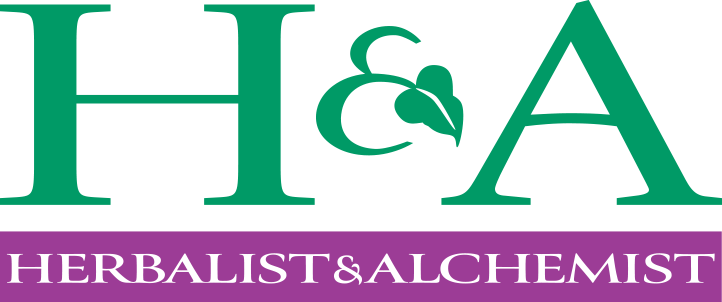Sourcing and Creating
I am often asked why H & A uses herbs from around the world. In my clinical practice I use what works, whether the herbs are from Asia (including Chinese and Ayurvedic herbs), Europe, Africa, South or North America. I am trained in Western/Eclectic, Chinese and Southeastern American herbal traditions, so I have experience with many different systems of medicine and the wide array of herbs used by each tradition to draw from. I use herbs according to their specific indications, energetics, modern research and my decades of clinical experience. This means that I am not bound to standardized combinations or the few herbs have been studied by science for a specific condition. I attempt to combine the art, tradition and science together in my use of herbs. What is important is that the herbs are of high quality, preferably organically grown or sustainably wildcrafted.
What I’ve learned from my training and experience is that to understand herbs better you need to know not only what they do, but also their “energetics.” Once you understand the energetics—is the herb warming or cooling, or bitter or drying or moistening—you understand how to combine them more effectively for a specific purpose. Let’s use our lung formulas as an example. We have respiratory tonics and anti-spasmodic formulas, but we also have energetically based formulas: one that’s for hot and dry lung conditions, one for cold and dry, one for cold and damp, and one for hot and damp.
I think it’s unfortunate that so many people limit themselves to a small handful of herbs, which essentially means trying to fit the patient to the available herbs. There are Chinese and Ayurvedic herbs that have simply no Western equivalents. There are Western herbs for which there are no Ayurvedic or Chinese equivalents, and so I choose the best of either herb world. Of course it depends on what is seasonally available or whether you can find high quality botanicals that are free from heavy metals and pesticides. We use the best of everything that we can find in the world, literally.
Evolution of the Business
A Harvard Business School graduate, H&A CEO Beth Lambert had a very successful Wall Street Career, but she left to follow her interest in environmentally based businesses. For years she had made money for clients whose products were made without consideration for sustainability or the environment. Having met some environmental pioneers in the Permaculture movement in the late 1980s, she resolved that the rest of her life would be dedicated to making products that were healthy, “closer to the earth” and sustainable. Before she knew it, she was running a Permaculture publishing company and a community-supported farm, and teaching at Rutgers University. One of her farming partners was taking David Winston’s two-year herbal studies program, and introduced them. David was looking for some advice on his herbal products company. And after reviewing the business, she joined the company as his business partner.
Beth has been very involved not only in running the company for the last 17 years, but is a long time board member of the American Herbal Products Association, the Veterinary Botanical Medicine Association, Genesis Farm and Chair of the AHPA-ERB Foundation.
30 Years Later
When I started Herbalist & Alchemist thirty years ago you could start a company on a shoestring and we did, in very humble conditions. Now the amount of regulation (FDA, FTC and ATF) is much, much more significant. Especially with the FDA’s Dietary Supplement Good Manufacturing Practices regulations, it is a more complex business with everything from detailed documentation and staff training to our various computer systems. We started off with a little 512K Macintosh as our first computer. Now we have computer systems and manufacturing systems. Production is on a much larger scale of course, but the biggest changes are the regulatory requirements and quality assurance costs of production. The cost of regulations, the cost of business insurance, the cost of innovation... all these things have dramatically increased, as well as the complexity of meeting all of those challenges. We meet those requirements very well, but it would be much harder to start Herbalist & Alchemist today.
I guess many companies don't last 30 years and I am very proud that we’re still here producing products that I’m as satisfied with as when I made everything with my own hands. The basic premise of wanting to produce the best medicines I could for my patients is still the guiding force behind what we do today. They’re not necessarily my patients today, but whether it’s a customer in a health food store or a practitioner in their office, I want to know that we’re producing the best quality product that we possibly can. And that we are consistently looking for ways to improve and enhance products, even if they been successful for 30 years. I believe that there is always room for improvement, for growth and that is part of our company culture. I hope in another 20 years when we’re celebrating our 50th anniversary we will hear people say “they are one of the great Herb companies of all time.”
